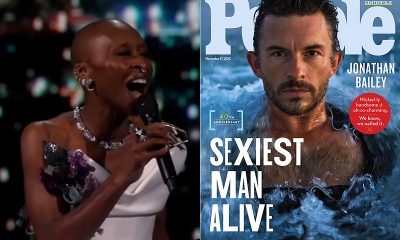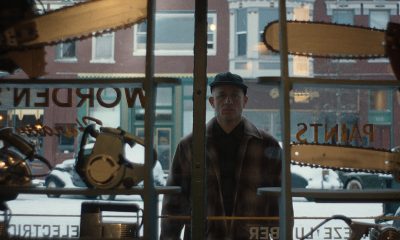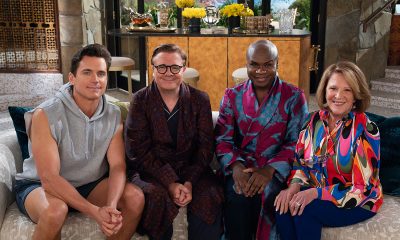Arts & Entertainment
Ryan Murphy says he will donate all ‘Pose’ profits to LGBT charities
The showrunner will feature an organization on Twitter for 14 days
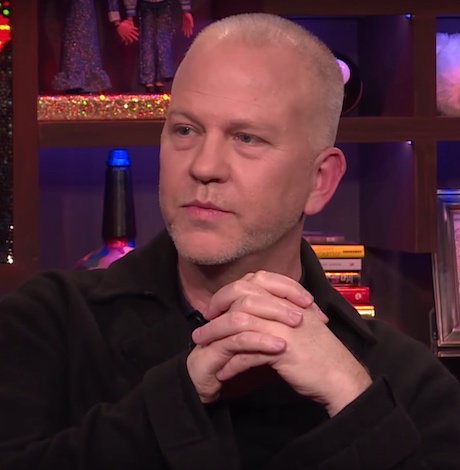
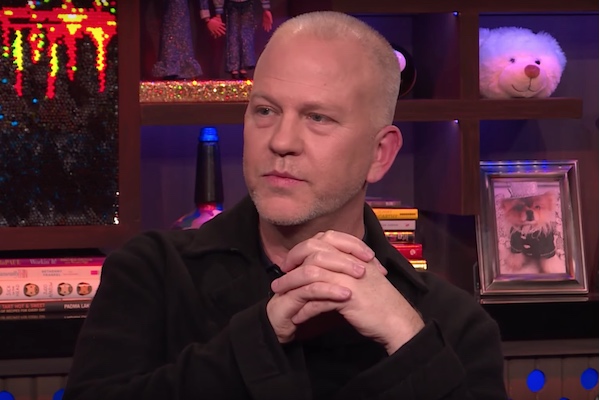
Ryan Murphy (Screenshot via YouTube)
Ryan Murphy will be donating all profits from his FX series “Pose” to LGBT charities.
The showrunner made the announcement on Twitter stating that he will be tweeting about a specific LGBT organization every day for the next 14 days.
“I am donating 100 percent of my profits from my new FX show POSE towards trans and LGBTQ charitable organizations. These groups do amazing work and need our support. Every day for the next 14 days I will highlight a group I’m supporting, and encourage you to do the same!” Murphy tweeted.
I am donating 100 percent of my profits from my new FX show POSE towards trans and LGBTQ charitable organizations. These groups do amazing work and need our support. Every day for the next 14 days I will highlight a group I’m supporting, and encourage you to do the same!
— Ryan Murphy (@MrRPMurphy) May 9, 2018
Murphy also gave recognition to one of the first charities he plans to donate “Pose” profits.
“The Sylvia Rivera Law Project. SRLP works to guarantee that all people are free to self-determine gender identity and expression, regardless of income or race, and without facing harassment, discrimination or violence,” Murphy tweeted.
The Sylvia Rivera Law Project. SRLP works to guarantee that all people are free to self-determine gender identity and expression, regardless of income or race, and without facing harassment, discrimination or violence. https://t.co/STLAmgRBOZ
— Ryan Murphy (@MrRPMurphy) May 9, 2018
“Pose” tells the story of ball culture set in New York City in the ’80s. It features the largest transgender cast and the largest LGBT cast on a network television series.
“Pose” premieres on Sunday, June 3 on FX.
a&e features
Vic Michaelis is a very important person
The ‘Ponies’ and ‘Very Important People’ star discusses what it’s like to make history (and great TV) as a non-binary performer today.

What does queer representation look like in 2026? It’s a complicated question, with a shockingly hopeful answer.
Harmful LGBTQ+ stereotypes have plagued mainstream media for decades, with only recent years offering big-budget projects exploring the nuances of marginalized identity. But even with this progress, the past year has left countless of these projects cancelled or delayed, with queer creatives and their stories becoming political fodder for bigots nationwide. Despite this, LGBTQ+ storytellers have persisted, continuing to tell their stories while creating new opportunities for other artists to thrive. It’s heartening to see so many queer storytellers doing this in the modern day, and it’s why Vic Michaelis’ historic filmography is more important now than ever.
A Canadian transplant, this non-binary performer arrived in LA one decade ago and took the city’s improv scene by storm. Eventually going from sketch comic to television host — though they still perform in improv clubs across LA — Michaelis has revolutionized talk shows and gained a massive following with their popular Dropout program, Very Important People. Not only that, but Vic’s newest role alongside Emilia Clarke and Haley Lu Richardson in the tense spy thriller, Ponies, means that the artist will be introduced to a bigger audience than they’ve encountered before. Theirs is a wonderfully chaotic career that keeps the performer very busy, but Michaelis still managed to sit down with the LA Blade to discuss these roles, what these projects mean to them, and how it feels to do all of this as an openly queer creative today.
“It’s so funny because it’s true, I am a talk show host…I am Vic Michaelis, and I am hosting a talk show, that is a true thing you are saying” Replied Michaelis, when learning that they’ve made history by becoming the first non-binary person to host a talk show. “All to say, it’s an honor!” Going into its third season, Very Important People perfectly matches its creators’ chaotic style of comedy. Each episode sees a different comedian get decked out in a random costume (ranging from gorgeous gowns to full hotdog prosthetics) and adopt a whole new persona for a sit-down interview with the star. It’s an irreverent premise that host and guest dive into wholeheartedly, with the performer stressing how this project mainly serves as a way to uplift the LA-based performers they know and love.
“The improv scene in LA is very tight-knit,” Michaelis explained. “And we get to see versions of these performers that we don’t [ever] get to see [onstage]. The best part of the show is watching [these people], my friends, shine in the spotlight.”
It’s this camaraderie — which has introduced audiences to numerous LGBTQ+ performers they wouldn’t have known otherwise — that has earned Very Important People widespread acclaim and garnered Michaelis thousands of fans online. And with them acting as a version of themself on the show, many watchers assumed they knew what to expect from the comedian…which is why Michaelis is so excited to shock them all with their total metamorphosis in Ponies.
While Vic is used to turning performers into monsters and aliens, their Ponies transformation sees them go from the bombastic host fans love into Cheryl: the no-nonsense, endlessly antagonistic office manager. The main foil of Ponies’ central protagonists (Clarke and Richardson), the series follows this trio as they maneuver around an American embassy in 1970s Russia. With our main duo acting as spies trying to master lethal espionage, they’re constantly forced to put up with Michaelis’ needling Cheryl…who just always happens to know more about their covert missions than she should.
“I personally have a lot of empathy for Cheryl,” gushed Vic, while detailing how it was to play such an intriguing character. “Especially in that time period! If she had been born a man, that would have been it. She is competent and capable, and would have risen far past the station that she’s in [when we meet her].” While initially presented as a one-dimensional nag, each Ponies episode dives deeper into this character; it teases not only the many skills she gave up for the sake of her husband, but just how far Cheryl will go to embrace the talents she’s been forced to hide away. And as a performer who’s made an entire talk show about bringing out the best in any kind of character, she offers a perfect avenue for Vic to show off their distinct acting style to a whole new audience on Peacock.
Cheryl gave Michaelis a chance to act in ways their fans have never seen before. But beyond that, Vic also recognizes a different significance to this role: the fact that it means thousands of new viewers will get to watch a queer person onscreen on a major network.
They detailed how they weren’t always as proudly authentic as they are now. Early in their career, Michaelis was faced with a choice: be openly non-binary, or masquerade as cisgender in an industry still riddled with biased casting directors. Quickly, and with the support of their fellow LA creatives, Vic realized not only how much their identity could mean to themself, but to so many others. “Especially being in a field that’s very dominated by cisgender white men…the representation is so important,” they explained. “And if it helps one person, then it’s been worth it. If one person feels seen, then you know it’s worth it.”
It has certainly proven itself to be worth it, as with this new role, Michaelis holds the honor of being one of the few gender-expansive performers to ever appear on a major network. And while proud of the tireless work it took to get them here, as the interview wound down, Vic made sure to shout out the many other LGBTQ+ performers creating and starring in shows across LA today. “There are a lot of incredible gender queer folks doing absolutely amazing things on the scene right now – but there’s always room for more.”
Michaelis encouraged anyone inspired by their work as an openly non-binary performer to try to find that confidence in themselves. To use their roles in Very Important People and Ponies as evidence that, no matter how much LGBTQ+ representation is attacked, remember that LGBTQ+ artists will never stop telling their stories to those who need it most. “There’s a lot of really, truly horrible, terrible anti-trans bills and anti-LGBTQ bills coming through,” said Vic. “It’s truly horrific, and it’s really scary…and I’m very proud and happy to stand with our community. [And] it really does feel like it’s not just me standing up. I get to be a part of this big chorus, standing up [for what’s right]. And it’s an honor.”
It’s an important reminder that the fight for representation is never one done in solitude. And, as Vic Michaelis is showing in their every role, it’s a fight that is only truly possible when done with and for your community…all while trying on as many costumes as possible, of course.
Movies
Rise of Chalamet continues in ‘Marty Supreme’
But subtext of ‘American Exceptionalism’ sparks online debate
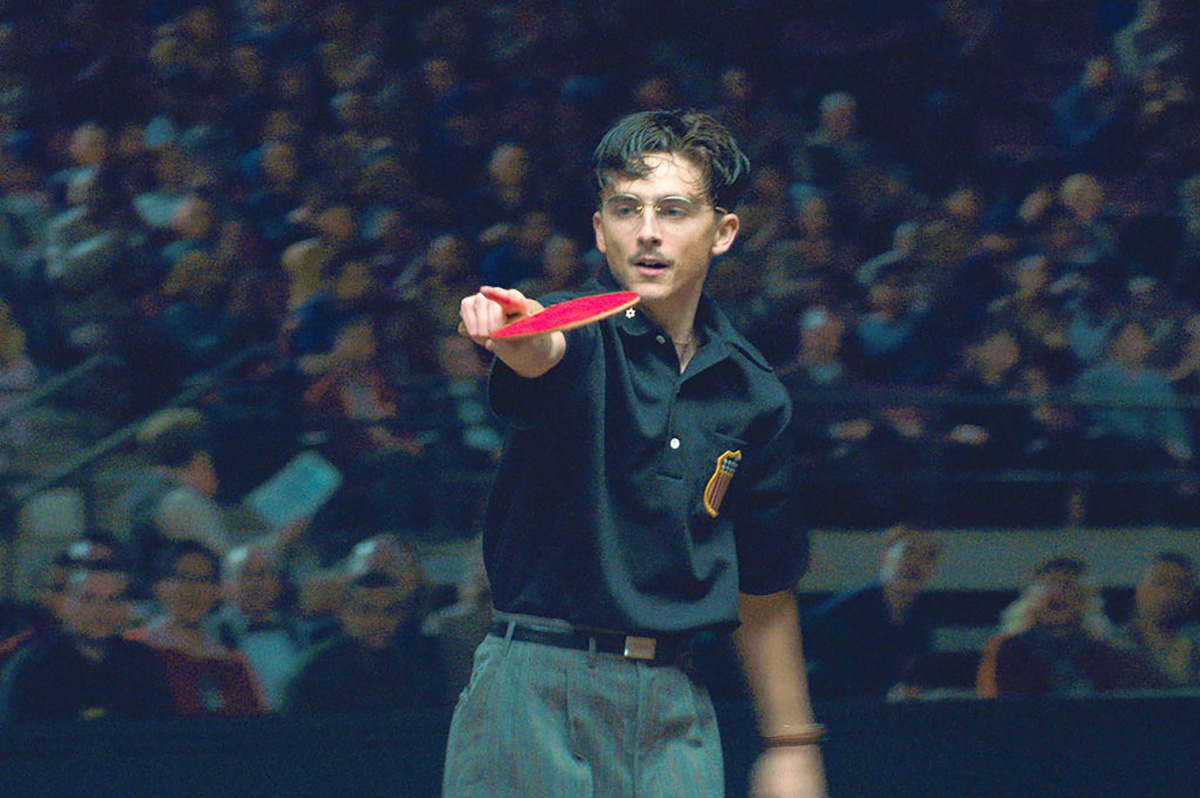
Casting is everything when it comes to making a movie. There’s a certain alchemy that happens when an actor and character are perfectly matched, blurring the lines of identity so that they seem to become one and the same. In some cases, the movie itself feels to us as if it could not exist without that person, that performance.
“Marty Supreme” is just such a movie. Whatever else can be said about Josh Safdie’s wild ride of a sports comedy – now in theaters and already racking up awards – it has accomplished exactly that rare magic, because the title character might very well be the role that Timothée Chalamet was born to play.
Loosely based on real-life table tennis pro Marty Reisman, who published his memoir “The Money Player” in 1974, this Marty (whose real surname is Mauser) is a first-generation American, a son of Jewish immigrant parents in post-WWII New York who works as a shoe salesman at his uncle’s store on the Lower East Side while building his reputation as a competitive table tennis player in his time off. Cocky, charismatic, and driven by dreams of championship, everything else in his life – including his childhood friend Rachel (Odessa A’zion), who is pregnant with his baby despite being married to someone else – takes a back seat as he attempts to make them come true, hustling every step of the way.
Inevitably, his determination to win leads him to cross a few ethical lines as he goes – such as stealing money for travel expenses, seducing a retired movie star (Gwyneth Paltrow), wooing her CEO husband (Kevin O’Leary) to sponsor him, and running afoul of the neighborhood mob boss (veteran filmmaker Abel Ferrara) – and a chain of consequences piles at his heels, threatening to undermine his success before it even has a chance to happen.
Filmed in 35mm and drenched in the visual style of the gritty-but-gorgeous “New Hollywood” cinema that Safdie – making his solo directorial debut without the collaboration of his brother Benny – so clearly seeks to evoke, “Marty Supreme” calls up unavoidable connections to the films of that era with its focus on an anti-hero protagonist trying to beat the system at its own game, as well as a kind of cynical amorality that somehow comes across more like a countercultural call-to-arms than a nihilistic social commentary. It’s a movie that feels much more challenging in the mid-2020s than it might have four or so decades ago, building its narrative around an ego-driven character who triggers all our contemporary progressive disdain; self-centered, reckless, and single-mindedly committed to attaining his own goals without regard for the collateral damage he inflicts on others in the process, he might easily – and perhaps justifiably – be branded as a classic example of the toxic male narcissist.
Yet to see him this way feels simplistic and reductive, a snap value judgment that ignores the context of time and place while invoking the kind of ethical purity that can easily blind us to the nuances of human behavior. After all, a flawed character is always much more authentic than a perfect one, and Marty Mauser is definitely flawed.
Yet in Chalamet’s hands, those flaws become the heart of a story that emphasizes a will to transcend the boundaries imposed by the circumstantial influences of class, ethnicity, and socially mandated hierarchy. His Marty is a person forging an escape path in a world that expects him to “know his place,” who is keenly aware of the anti-semitism and cultural conventions that keep him locked into a life of limited possibilities and who is willing to do whatever it takes to break free of them; and though he might draw our disapproval for the choices he makes, particularly with regard to his relationship with Rachel, he grows as he goes, navigating a character arc that is less interested in redemption for past sins than it is in finding the integrity to do better the next time – and frankly, that’s something that very few toxic male narcissists ever do.
In truth, it’s not surprising that Chalamet nails the part, considering that it’s the culmination of a project that began in 2018, when Safdie gave him Reisman’s book and suggested collaborating on a movie based on the story of his rise to success. The actor began training in table tennis, and continued to master it over the years, even bringing the necessary equipment to location shoots for movies like “Dune” so that he could perfect his skills – but physical skill aside, he always had what he needed to embody Marty. This is a character who knows what he’s got and is not ashamed to use it, who has the drive to succeed, the will to excel, and the confidence to be unapologetically himself while finding joy in the exercise of his talents, despite how he might be judged by those who see only ego. If any actor could be said to reflect those qualities, it’s Timothée Chalamet.
Other members of the cast also score deep impressions, especially A’zion, whose Rachel avoids tropes of victimhood to achieve her own unconventional character arc. Paltrow gives a remarkably vulnerable turn as the aging starlet who willingly allows Marty into her orbit despite the worldliness that tells her exactly what she’s getting into, while O’Leary embodies the kind of smug corporate venality that instantly positions him as the avatar for everything Marty is trying to escape. Queer fan-fave icons Fran Drescher and Sandra Bernhard also make small-but-memorable appearances, and real-life deaf table tennis player Koto Kawaguchi strikes a memorable chord as the Japanese champion who becomes Marty’s de facto rival.
As for Safdie’s direction, it’s hard to find anything to criticize in his film’s visually stylish, sumptuously photographed (by Darius Khondji), and tightly paced delivery, which makes its two-and-a-half hour runtime fly by without a moment of drag.
It must be said that the screenplay – co-written by Safdie with Ronald Bronstein – leans heavily into an approach in which much of the narrative hinges on implausible coincidences, ironic twists, and a general sense of orchestrated chaos that makes things occasionally feel a little too neat; but let’s face it, life is like that sometimes, so it’s easy to overlook.
What might be more problematic, for some audiences, is Marty’s often insufferable – and occasionally downright ugly behavior. Yes, Chalamet infuses it all with humanizing authenticity, and the story is ultimately more about the character’s emotional evolution than it is about his winning at ping-pong, but it’s impossible not to read a subtext of American Exceptionalism into his winner-takes-all climb to victory – which is why “Marty Supreme,” for all its critical acclaim, is the subject of much heated debate and outrage on social media right now.
As for us, we’re not condoning anything Marty does or says as he hustles his way to the winner’s circle. All we’re saying is that Timothée Chalamet has become an even better actor since he captured our attention (and a lot of gay hearts) in “Call Me By Your Name.”
And that’s saying a lot, because he was pretty great, even then.
Dorian Film Awards
‘One Battle After Another,’ ‘Sorry, Baby’ and ‘Sinners’ among 2026 Dorian Film Award nominees
Ryan Coogler, Cynthia Erivo, and Jafar Panahi are nominated in the Wilde Artist Award category
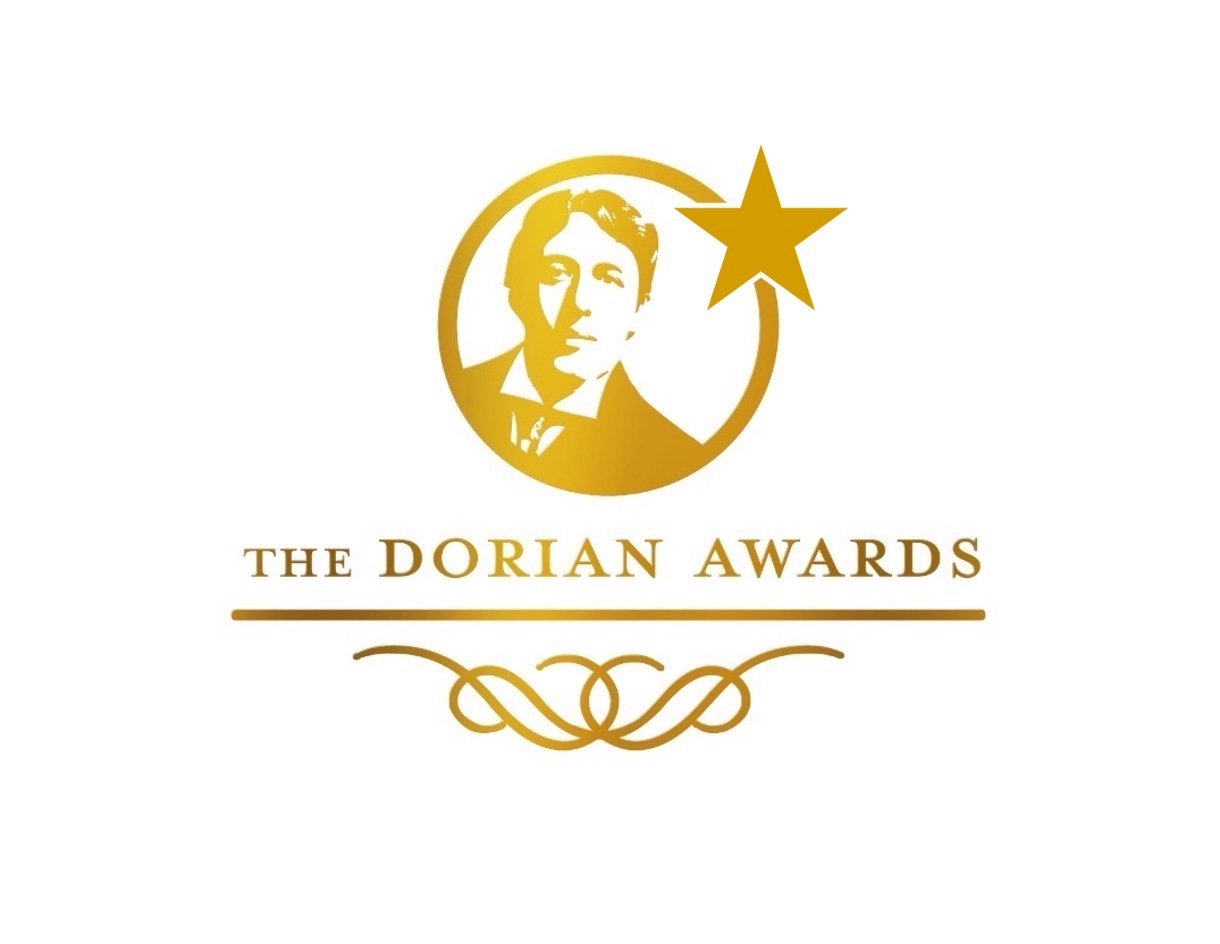
One Battle After Another, Sorry, Baby and Sinners are among this year’s Dorian Film Award nominees, celebrating the best in 2025 film, as chosen by GALECA, the Society of LGBTQ Critics.
One Battle After Another leads the pack with nine nominations, including for Paul Thomas Anderson as director of the year and acting nominees Leonardo DiCaprio, Benicio del Toro, Sean Penn and Teyana Taylor (who just won the Golden Globe for best supporting actress). Right behind the awards season juggernaut is Marty Supreme with eight nominations and Sinners with five nominations.
“Across genres and borders, LGBTQ filmmakers and performers are telling stories that are bold, personal, and adventurous — often in the face of cultural resistance,” GALECA Vice President Gerrick Kennedy said in a statement. “GALECA is proud to honor a class of nominees that don’t just reflect the moment, but challenge and expand it.”
GALECA uniquely features an LGBTQ Film of the Year award, and this year’s crop of nominees includes Blue Moon, Hedda, Pillion, Sorry, Baby, and Twinless. Ryan Coogler, Cynthia Erivo and Jafar Panahi are among the names listed for the Wilde Artist Award, while the GALECA LGBTIA+ Film Trailblazer Award features Jonathan Bailey, Kristen Stewart, and Eva Victor. Every year, GALECA also honors someone with the Timeless Star career achievement award, with previous recipients including Demi Moore and Nathan Lane.
Check out the full list of nominees below. Winners will be announcedon Thursday, March 3, at the 2026 Dorians Film Toast, where the Timeless Star award recipient will also be unveiled.
FULL LIST
FILM OF THE YEAR
Hamnet (Focus Features)
Marty Supreme (A24)
One Battle After Another (Warner Bros.)
Sinners (Warner Bros.)
Sorry, Baby (A24)
LGBTQ FILM OF THE YEAR
Blue Moon (Sony Pictures Classics)
Hedda (Amazon MGM Studios)
Pillion (A24)
Sorry, Baby (A24)
Twinless (Lionsgate, Roadside Attractions)
DIRECTOR OF THE YEAR
Paul Thomas Anderson, One Battle After Another (Warner Bros.)
Ryan Coogler, Sinners (Warner Bros.)
Jafar Panahi, It Was Just an Accident (Neon)
Josh Safdie, Marty Supreme (A24)
Chloé Zhao, Hamnet (Focus Features)
SCREENPLAY OF THE YEAR
Hamnet, Chloé Zhao, Maggie O’Farrell (Focus Features)
Marty Supreme, Josh Safdie, Ronald Bronstein (A24)
One Battle After Another, Paul Thomas Anderson (Warner Bros.)
Sinners, Ryan Coogler (Warner Bros.)
Sorry, Baby, Eva Victor (A24)
LGBTQ SCREENPLAY OF THE YEAR
Blue Moon, Robert Kaplow (Sony Pictures Classics)
Hedda, Nia DeCosta (Amazon MGM Studios)
Pillion, Harry Lighton (A24)
Sorry, Baby, Eva Victor (A24)
Twinless, James Sweeney (Lionsgate, Roadside Attractions)
NON-ENGLISH LANGUAGE FILM OF THE YEAR
It Was Just an Accident (Neon)
No Other Choice (Neon)
Sentimental Value (Neon)
Sirāt (Neon)
The Secret Agent (Neon)
LGBTQ NON-ENGLISH FILM OF THE YEAR
Cactus Pears (Strand Releasing)
Misericordia (Janus Films, Sideshow)
Sauna (Breaking Glass)
The Mysterious Gaze of the Flamingo (Altered Innocence)
Viet and Nam (Strand Releasing)
UNSUNG FILM OF THE YEAR
Black Bag (Focus Features)
If I Had Legs I’d Kick You (A24)
Lurker (Mubi)
The Testament of Ann Lee (Searchlight Pictures)
Twinless (Lionsgate, Roadside Attractions)
UNSUNG LGBTQ FILM OF THE YEAR
A Nice Indian Boy (Blue Harbor Entertainment)
Kiss of the Spider Woman (Lionsgate, Roadside Attractions, LD Entertainment)
Peter Hujar’s Day (Janus)
Plainclothes (Magnolia)
The Wedding Banquet (Bleecker Street)
FILM PERFORMANCE OF THE YEAR
Rose Byrne, If I Had Legs I’d Kick You (A24)
Timothée Chalamet, Marty Supreme (A24)
Leonardo DiCaprio, One Battle After Another (Warner Bros.)
Jessie Buckley, Hamnet (Focus Features)
Ethan Hawke, Blue Moon (Sony Pictures Classics)
Michael B. Jordan, Sinners (Warner Bros.)
Dylan O’Brien, Twinless (Lionsgate, Roadside Attractions)
Renate Reinsve, Sentimental Value (Neon)
Amanda Seyfried, The Testament of Ann Lee (Searchlight Pictures)
Tessa Thompson, Hedda (Amazon MGM Studios)
SUPPORTING FILM PERFORMANCE OF THE YEAR
Benicio del Toro, One Battle After Another (Warner Bros.)
Jacob Elordi, Frankenstein (Netflix)
Ariana Grande-Butera, Wicked: For Good (Universal)
Nina Hoss, Hedda (Amazon MGM Studios)
Inga Ibsdotter Lilleaas, Sentimental Value (Neon)
Amy Madigan, Weapons (Warner Bros.)
Wunmi Mosaku, Sinners (Warner Bros.)
Sean Penn, One Battle After Another (Warner Bros.)
Stellan Skarsgård, Sentimental Value (Neon)
Teyana Taylor, One Battle After Another (Warner Bros.)
DOCUMENTARY OF THE YEAR
Come See Me in the Good Light (Apple)
Cover-Up (Netflix)
My Mom Jayne (HBO)
The Perfect Neighbor (Netflix)
Predators (MTV Documentary Films)
LGBTQ DOCUMENTARY OF THE YEAR
Come See Me in the Good Light (Apple)
Heightened Scrutiny (Fourth Act Film)
I Was Born This Way (JungeFilms / Goodform)
The Librarians (8 Above)
Liza: A Truly Terrific Absolutely True Story (Zeitgeist Films)
ANIMATED FILM OF THE YEAR
Arco (Neon)
Elio (Disney)
KPop Demon Hunters (Netflix, Sony)
Little Amélie or the Character of Rain (GKIDS)
Zootopia 2 (Disney)
GENRE FILM OF THE YEAR
28 Years Later (Sony)
Bring Her Back (A24)
Frankenstein (Netflix)
Sinners (Warner Bros.)
Weapons (Warner Bros.)
VISUALLY STRIKING FILM OF THE YEAR
Avatar: Fire and Ash (Disney)
Frankenstein (Netflix)
One Battle After Another (Warner Bros.)
Sinners (Warner Bros.)
Train Dreams (Netflix)
FILM MUSIC OF THE YEAR
KPop Demon Hunters – Marcelo Zarvos, EJAE, Mark Sonnenblick, Danny Chung, Vince, Kush, Lindgren, Daniel Rojas, et al. (Netflix, Sony)
Marty Supreme – Daniel Lopatin (A24)
One Battle After Another – Jonny Greenwood (Warner Bros.)
Sinners – Ludwig Göransson (Warner Bros.)
The Testament of Ann Lee – Daniel Blumberg (Searchlight Pictures)
CAMPIEST FLICK
Final Destination: Bloodlines (Warner Bros.)
Kiss of the Spider Woman (Lionsgate, Roadside Attractions, LD Entertainment)
The Housemaid (Lionsgate)
Weapons (Warner Bros.)
Wicked: For Good (Universal)
“WE’RE WILDE ABOUT YOU!” RISING STAR AWARD
Odessa A’zion
Miles Caton
Chase Infiniti
Tonatiuh
Eva Victor
WILDE ARTIST AWARD
Ryan Coogler
Cynthia Erivo
Jinkx Monsoon
Jafar Panahi
Pedro Pascal
GALECA LGBTQIA+ FILM TRAILBLAZER
Gregg Araki
Jonathan Bailey
Kristen Stewart
Tessa Thompson
Eva Victor
Golden Globe Awards
Wanda Sykes thanking the trans community, Hudson Williams and Connor Storrie presenting, and more Golden Globes highlights
Julia Roberts also shouted out Eva Victor and implored her fellow actors to watch Sorry, Baby
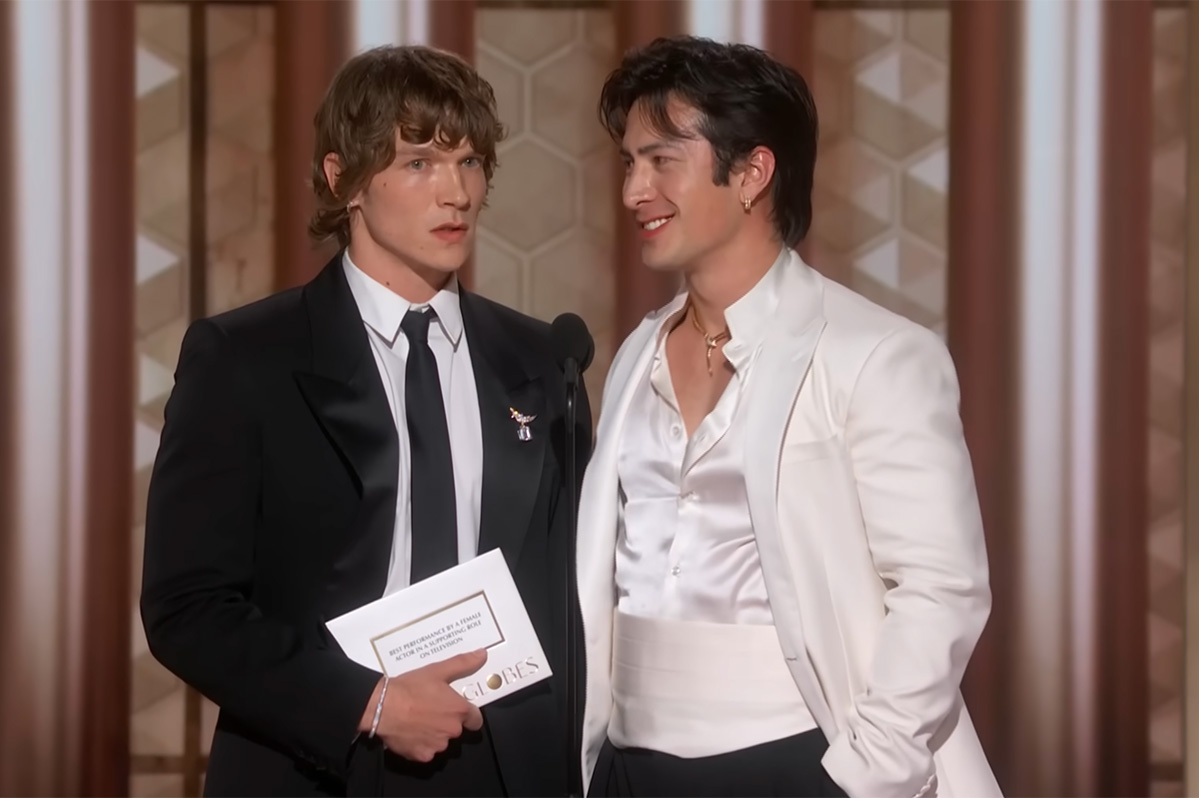
At last night’s Golden Globes, Wanda Sykes stole the show by honoring the trans community — and doing so at Ricky Gervais’ expense.
When accepting Gervais’ award for best comedy special on his behalf (the former Globes host wasn’t in attendance), Sykes said: “[Thank] god and the trans community,” a clear nod to the controversy Gervais received after making jokes against the trans community during his 2022 Netflix stand-up special. Sykes’ scene-stealing quip wasn’t the only queer highlight of this year’s Golden Globes ceremony, though, which saw expected Oscar contenders One Battle After Another, Hamnet, and Sentimental Value all win major awards.
Erin Doherty took home her first Golden Globe for Adolescence after winning at the Critics Choice Awards, and she dedicated her speech to mental health professionals. “I didn’t want to assume, but I feel like we all know therapists,” she said. “Life can be tough. Mental health is everything. Thank you to therapists, and it was an honor to play one.”
The moment was made all the more special as Heated Rivalry actors Hudson Williams and Connor Storrie presented Doherty, an openly queer actor, the award. To set the scene, the two actors walked out to Chappell Roan’s Pink Pony Club before going on to charm the audience with a bit about underwear and what audiences saw during the show’s intimate sex scenes. Which awards show will the Heated Rivalry stars crash next?
While most of the TV wins were expected Emmy repeats, Rhea Seehorn changed the tides with a Golden Globe award for her performance in Pluribus, marking both her first nomination and win. Referencing a piece of paper in her hand, Seehorn said, “My speech says, ‘Get a prescription for beta blockers,’ but I did not. Sorry! I’m going to do my best. I’m sorry, I am just a little shocked!”
As for losses, while Eva Victor didn’t take home the best actress in a motion picture drama award for their work in Sorry, Baby, fellow category loser Julia Roberts (After the Hunt) shouted out the beloved indie, imploring people who haven’t watched it to “see it” and calling Victor “my hero.” For her work in Hedda, Tessa Thompson was also nominated in that category, which predictably went to Jessie Buckley for Hamnet.
Hannah Einbinder didn’t win for her supporting performance in Hacks, meaning the Emmy award-winning comedian has yet to win a Golden Globe. Richard Linklater’s Blue Moon, which was nominated for two awards, couldn’t beat out the likes of One Battle After Another and Timothée Chalamet for Marty Supreme. And perhaps not too surprising at this point, but Wicked: For Good lost all its major categories. The film has continued to lose steam in the awards conversation after missing crucial nominations at the Producers Guild Awards and The Actor Awards, but there’s still hope for Ariana Grande to land an Oscar nomination.
Books
Feminist fiction fans will love ‘Bog Queen’
A wonderful tale of druids, warriors, scheming kings, and a scientist
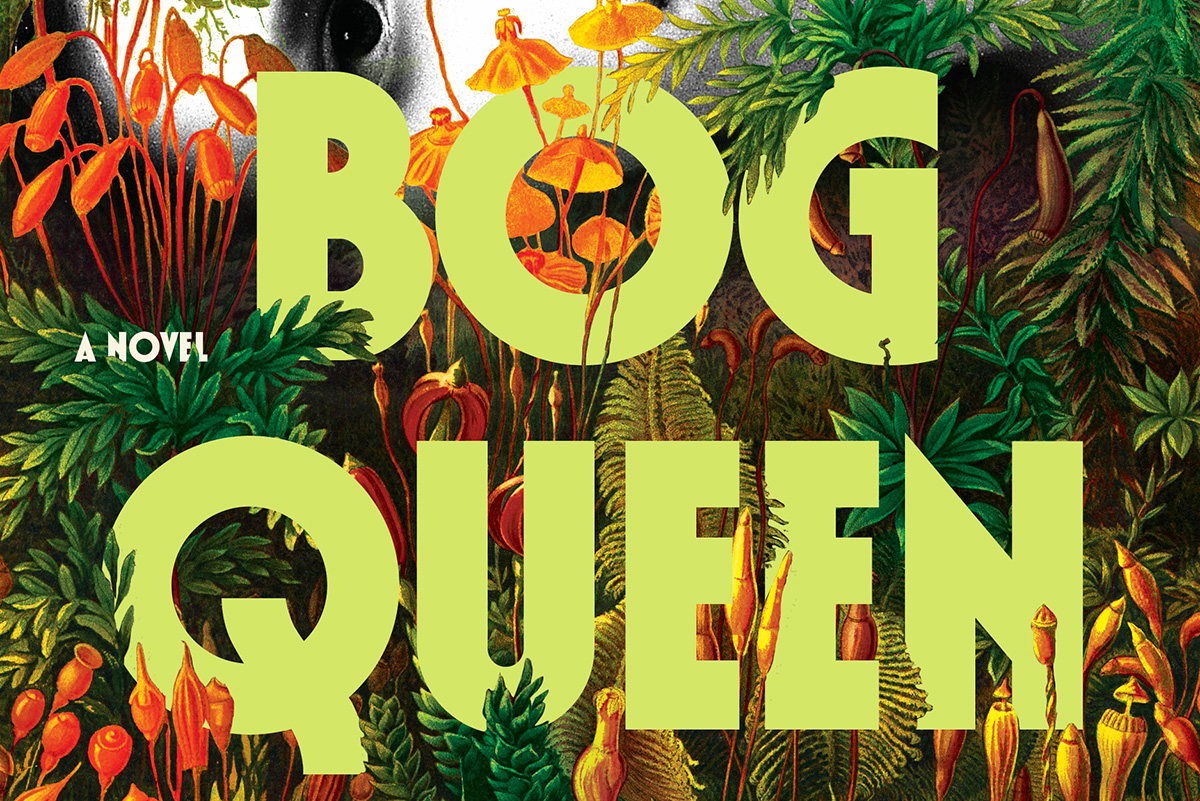
‘Bog Queen’
By Anna North
c.2025, Bloomsbury
$28.99/288 pages
Consider: lost and found.
The first one is miserable – whatever you need or want is gone, maybe for good. The second one can be joyful, a celebration of great relief and a reminder to look in the same spot next time you need that which you first lost. Loss hurts. But as in the new novel, “Bog Queen” by Anna North, discovery isn’t always without pain.

He’d always stuck to the story.
In 1961, or so he claimed, Isabel Navarro argued with her husband, as they had many times. At one point, she stalked out. Done. Gone, but there was always doubt – and now it seemed he’d been lying for decades: when peat cutters discovered the body of a young woman near his home in northwest England, Navarro finally admitted that he’d killed Isabel and dumped her corpse into a bog.
Officials prepared to charge him.
But again, that doubt. The body, as forensic anthropologist Agnes Lundstrom discovered rather quickly, was not that of Isabel. This bog woman had nearly healed wounds and her head showed old skull fractures. Her skin glowed yellow from decaying moss that her body had steeped in. No, the corpse in the bog was not from a half-century ago.
She was roughly 2,000 years old.
But who was the woman from the bog? Knowing more about her would’ve been a nice distraction for Agnes; she’d left America to move to England, left her father and a man she might have loved once, with the hope that her life could be different. She disliked solitude but she felt awkward around people, including the environmental activists, politicians, and others surrounding the discovery of the Iron Age corpse.
Was the woman beloved? Agnes could tell that she’d obviously been well cared-for, and relatively healthy despite the injuries she’d sustained. If there were any artifacts left in the bog, Agnes would have the answers she wanted. If only Isabel’s family, the activists, and authorities could come together and grant her more time.
Fortunately, that’s what you get inside “Bog Queen”: time, spanning from the Iron Age and the story of a young, inexperienced druid who’s hoping to forge ties with a southern kingdom; to 2018, the year in which the modern portion of this book is set.
Yes, you get both.
Yes, you’ll devour them.
Taking parts of a true story, author Anna North spins a wonderful tale of druids, vengeful warriors, scheming kings, and a scientist who’s as much of a genius as she is a nerd. The tale of the two women swings back and forth between chapters and eras, mixed with female strength and twenty-first century concerns. Even better, these perfectly mixed parts are occasionally joined by a third entity that adds a delicious note of darkness, as if whatever happens can be erased in a moment.
Nah, don’t even think about resisting.
If you’re a fan of feminist fiction, science, or novels featuring kings, druids, and Celtic history, don’t wait. “Bog Queen” is your book. Look. You’ll be glad you found it.
Movies
A Shakespearean tragedy comes to life in exquisite ‘Hamnet’
Chloe Zhao’s devastating movie a touchstone for the ages

For every person who adores Shakespeare, there are probably a dozen more who wonder why.
We get it; his writings, composed in a past when the predominant worldview was built around beliefs and ideologies that now feel as antiquated as the blend of poetry and prose in which he wrote them, can easily feel tied to social mores that are in direct opposition to our own, often reflecting the classist, sexist, and racist patriarchal dogma that continues to plague our world today. Why, then, should we still be so enthralled with him?
The answer to that question might be more eloquently expressed by Chloe Zhao’s “Hamnet” – now in wide release and already a winner in this year’s barely begun awards season – than through any explanation we could offer.
Adapted from the novel by Maggie O’Farrell (who co-wrote the screenplay with Zhao), it focuses its narrative on the relationship between Will Shakespeare (Paul Mescal) and his wife Agnes Hathaway (Jessie Buckley), who meet when the future playwright – working to pay off a debt for his abusive father – is still just a tutor helping the children of well-to-do families learn Latin. Enamored from afar at first sight, he woos his way into her life, and, convincing both of their families to approve the match (after she becomes pregnant with their first child), becomes her husband. More children follow – including Hamnet (Jacobi Jupe), a “surprise” twin boy to their second daughter – but, recognizing Will’s passion for writing and his frustration at being unable to follow it, Agnes encourages him to travel to London in order to immerse himself in his ambitions.
As the years go by, Agnes – aided by her mother-in-law (Emily Watson) and guided by the nature-centric pagan wisdom of her own deceased mother – raises the children while her husband, miles away, builds a successful career as the city’s most popular playwright. But when an outbreak of bubonic plague results in the death of 11-year-old Hamnet in Will’s absence, an emotional wedge is driven between them – especially when Agnes receives word that her husband’s latest play, titled “Hamlet,” considered an interchangeable equivalent to the name of their dead son, is about to debut on the London stage.
There is nothing, save the bare details of circumstance around the Shakespeare family, that can be called factual about the narrative told in “Hamnet.” Records of Shakespeare’s private life are sparse and short on context, largely limited to civic notations of fact – birth, marriage, and death announcements, legal documents, and other general records – that leave plenty of blank spaces in which to speculate about the personal nuance that such mundane details might imply. What is known is that the Shakespeares lost their son, probably to the plague, and that “Hamlet” – a play dominated by expressions of grief and existential musings about life and death – was written over the course of the next five years. Shakespearean scholars have filled in the blanks, and it’s hard to argue with their assumptions about the influence young Hamnet’s tragic death likely had over the creation of his father’s masterwork. What human being would not be haunted by such an event, and how could it not impact every aspect of their experience in the world forever after?
In their screenplay, O’Farrell and Zhao imagine an Agnes Shakespeare (most records refer to her as “Anne” but her father’s will uses the name “Agnes”) who stands apart from the conventions of her town, born of a “wild woman” in the woods and raised in ancient traditions of mysticism and nature magic before being adopted into her well-off family, who presents a worthy match and an intellectual equal for the brilliantly passionate creator responsible for some of Western Civilization’s most iconic tales. They imagine a courtship that would have defied the customs of the time and a relationship that feels almost modern, grounded in a love and mutual respect that’s a far cry from most popular notions of what a 16th-century marriage might look like. More than that, they imagine that the devastating loss of a child – even in a time when the mortality rate for children was high – might create a rift between two parents who can only process their grief alone. And despite the fact that almost none of what they present to us can be seen, at best, as anything other than informed speculation, it all feels devastatingly true.
That’s the quality that “Hamnet” shares with the ever-popular Will Shakespeare; though it takes us into a past that feels almost as alien to us as if it took place upon a different planet, it evokes a connection to the simple experience of being human, which cuts through the differences in context. Just as the kings, heroes, and fools of Shakespeare’s plays express and embody the same emotional experiences that shape our own mundane modern lives, the film’s portrayal of these two real-life people torn apart by personal tragedy speaks directly to our own shared sense of loss – and it does so with an eloquence that, like Shakespeare’s, emerges from the story to make it feel as palpable as if their grief was our own.
Yes, the writing and direction – each bringing a powerfully feminine “voice” to the story – are key to the emotional impact of “Hamnet,” but it’s the performances of its stars that carry it to us. Mescal, once more proving himself a master at embodying the kind of heartfelt, masculine tenderness that’s capable of melting our hearts, gives us an accessible Shakespeare, driven perhaps by a spark of genius yet deeply grounded in a tangible humanity that underscores the “everyman” sensibility that informs the man’s plays. But it’s Buckley’s movie, by a wide margin, and her bold, fierce, and deeply affecting performance gives voice to a powerful grief, a cry against the injustice and cruelty of what we fumblingly call “fate” that resonates deep within us and carries our own grief, over losses we’ve had and losses we know are yet to come, along with her on the journey to catharsis.
That’s the word – “catharsis” – that defines why Shakespeare (and by extension, “Hamnet”) still holds such power over the imagination of our human race all these centuries later. The circumstantial details of his stories, wrapped up in ancient ideologies that still haunt our cultural imagination, fall away in the face of the raw expression of humanity to which his characters give voice. When Hamlet asks “to be or not to be?,” he is not an old-world Danish Prince contemplating revenge against a traitor who murdered his father; he is Shakespeare himself, pondering the essential mystery of life and death, and he is us, too.
Likewise, the Agnes Shakespeare of “Hamnet” (masterfully enacted by Buckley) embodies all our own sorrows – past and future, real and imagined – and connects them to the well of human emotion from which we all must drink; it’s more powerful than we expect, and more cleansing than we imagine, and it makes Zhao’s exquisitely devastating movie into a touchstone for the ages.
We can’t presume to speak for Shakespeare, but we are pretty sure he would be pleased.
Arts & Entertainment
2026 Most Eligible LGBTQ Singles nominations
We are looking for the most eligible LGBTQ singles in Los Angeles

Are you or a friend looking to find a little love in 2026? We are looking for the most eligible LGBTQ singles in Los Angeles. Nominate you or your friends until January 23rd using the form below or by clicking HERE.
Our most eligible singles will be announced online in February.
a&e features
‘The Golden Girls’ writer Stan Zimmerman reflects on 40th anniversary, coming out, and working with Roseanne Barr
Zimmerman co-wrote the infamous Season 6 Roseanne episode Don’t Ask, Don’t Tell, which prompted controversy at ABC simply for featuring a same-sex kiss
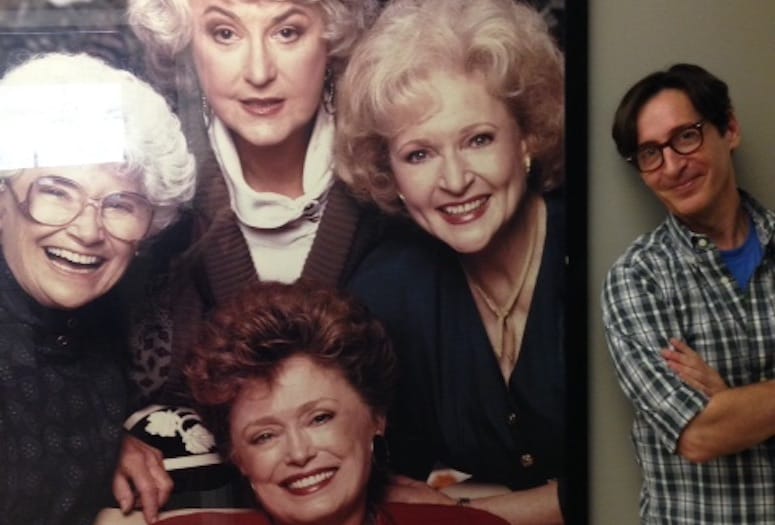
The Golden Girls, one of the most beloved sitcoms of all time, quickly resonated with the LGBTQ+ community due to its stars Betty White, Estelle Getty, Rue McClanahan, and Bea Arthur. But in 1985, when Season 1 began airing, the environment surrounding the making of the show wasn’t so supportive for its gay writers, who started on staff without being out to their co-workers. Stan Zimmerman and his writing partner, James Berg, decided to open up in a local paper.
“Our representatives thought it was a bad idea, but it was a relief for us to finally come out,” Zimmerman tells The Blade. “It’s hard to go to work and be yourself, especially in a job where you have to open your heart and mind and be open to talking about things that you were going through to then create episodes around. Imagine going to work, and you can’t divulge anything. How can you really bring your best talents to the table?”
Starting out the new year, Zimmerman reflects on the show’s 40th anniversary and continued impact. The Blade spoke with Zimmerman about his experience coming out while working on Season 1 of The Golden Girls, dining with Estelle Getty, and writing on Roseanne — notably the Season 6 episode Don’t Ask, Don’t Tell that featured a kiss between two women and prompted outrage from the network. (This interview has been edited and condensed.)
As people have celebrated The Golden Girls turning 40 in 2025, what’s on your mind as you look back?
Of course, tons of memories. But talking about the 40th anniversary, when going into a career, I just wanted a job. And then pretty early on, I landed on the first season of The Golden Girls, and that was more than a job — it changed my life. At the time, you don’t think you’re gonna be talking about it forty years from now, especially when you’re super young like I was. You just want to be able to buy food and pay for living. Then you see that show go through so many renaissances and see new audiences come to it. You know, that first wave was, “Wait, you’re too young to have watched the show. How do you know about it?” And then these waves kept coming and coming. But I feel like right now, this is the biggest wave ever. The show is more popular today than it was back then, and you just see so many generations of people enjoying it and so many age groups. I’ve been involved in television for a long time, and luckily, been involved in a number of big hit shows, yet the thought that one show could attract young kids all the way to older people is pretty wild. With most shows, you only aim for a certain demo.
I have luckily heard so many beautiful stories, especially of LGBTQ+ members sharing their Golden Girls viewings with grandparents. It was such a great way to bond and laugh, and also touch upon a lot of subjects that you probably would not bring up at the dinner table. You’re laughing with them, or you’re seeing characters come out of the closet, and you’re watching these older characters in the show work through them, realizing how important these family members and friends are in their lives.
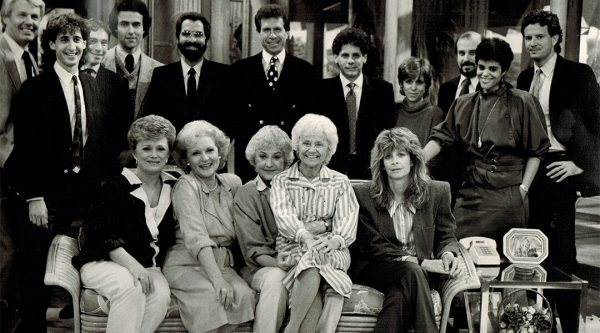
The path to getting into a writers’ room back in 1985 must’ve been so different than what it’s like starting out now. How did you get your foot in the door with a staff job on The Golden Girls?
It’s so funny that you would use the phrase “Foot in the door.” My grandmother must be speaking through you because she always said to me, “Just get your foot through the door, Stanley!” This was after Golden Girls, and I said, “I think my foot’s in the door, I’m trying to shove the rest of my body in.” Obviously, when I started out, there were nights that were just four sitcoms in a row on one network. And for many years, we would have multiple offers to go on a TV series. Now, we’re lucky if there are two or three comedies. There were just more places for us to learn. I’ve always said that Golden Girls was like our college writing 101 classes — how do you write a TV comedy? We were also doing 22-24 episodes a season, so that repetition of learning structure was so fundamental to my growth as a TV writer. Today, writers are lucky if they do six episodes a season. We did a sitcom that we created called Rita Rocks. We did 40 episodes. Then, it was two seasons, and it was OK, a middling success. But if you did 40 episodes of a show now, that would be huge.
You see a few shows now, like Abbott Elementary, that have big season orders and return yearly. But now everything’s a limited series, six or eight episodes. You just don’t get to spend as much time with the characters, which is part of what we love about TV.
And as a writer, we love it because you really get to explore all the different facets of characters and paint them into corners and see how they get out of it. That was really exciting. But also the flip side of that is that at the end of the season, you were exhausted. You had a table read on Monday, and you were filming it on Friday, come hell or high water. You stayed as late as it took.
I gave up a lot of my personal life to work on TV shows. Sometimes, as we get older, we question what could have been, but I loved every moment of it, even the ones that were a little more challenging, like being on Roseanne and dealing with her, and delving into so many interesting storylines. Especially the lesbian kiss episode, which we wrote.
People think of Golden Girls as a very progressive show with a big queer audience, yet, especially in that first season, I know being gay was taboo in the industry. When do you think studio execs started realizing how much the show was resonating with queer people?
I remember going through West Hollywood on a Saturday night when the show was on, and there’d be nobody on the street because they were all in the bars, watching the show on monitors. And I will have to admit, occasionally, I would drop the Golden Girls credit to see if I could get a free martini — that might have worked here and there. But years later, I’d go to gay bars and still see clips of my shows or just meet LGBTQ+ people who knew every word of the scripts. That was really fascinating that it resonated with the audience so much.
And I got to know Estelle Getty, who played Harvey Fierstein’s mother on Broadway in Torch Song Trilogy. She was very friendly with the gay community and would invite me out to dinner, and I got very excited. There’d be 20 gay men, all actors from different companies of Torch Song. She just felt very comfortable being in the company of a gay man.
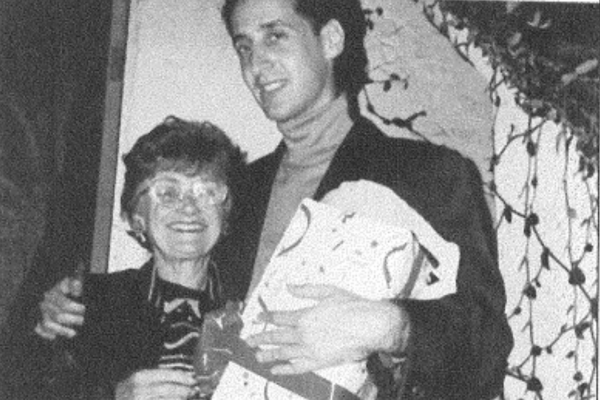
After you came out as gay in the ‘80s, there was a lot of press attention. What was your experience with that?
Back then, it was a big deal if you came out. Obviously, we weren’t household names or actors whose faces were on cameras — those people had to come out on magazine covers. Many of my friends who were actors who were gay or lesbian had to come out in their own way, or else a lot of the tabloids were going to out them anyway. So we got to pick when we wanted to come out, and it was an article in a local paper.
It was a relief, but then for a while, it just opened up the discussions to those writers’ rooms, who were mostly male writers. They just had a zillion questions, all day long. They’d be asking us gay questions, and we’d be like, “Can we write the show and not talk about something gay?” Or we would be at Paramount in an office, and there’d be a window, and a beautiful girl would walk by. The writers would go, “Nothing?” and we’re like, “No.” And then when a hot guy walked by, we’d go to them, “Nothing?” So it got some lively discussions going in the room, which was cool that we got to share that and open up a lot of minds and hearts. Then, turning to a show like Roseanne, Tom Arnold would be running up and down the halls yelling, “Where are my gay guys?” — meaning James Berg and me. And we just kept thinking, “Oh, my God, you can’t say that out loud.” Today, there’d obviously be a lawsuit if you said that.
I wanted to ask you about Roseanne, specifically the Don’t Ask, Don’t Tell episode in Season 6. The network threatened not to air the episode. What was your experience writing that episode and then facing the industry’s reaction?
We knew it would be an interesting episode because Roseanne Barr, on the show and in real life back then, was very open and liberal. So we thought about what story we could give her where we questioned that. If she got kissed by a woman, was she comfortable with that? How did people in her life react? We had no idea that the network would balk at that because it was just a nanosecond of a kiss. ABC flat out said, “We’re not going to let you film it.” Why? What did they think would happen?
You look at the parallels to today. Why do we not want drag queens reading children’s books to kids? Back then, were they afraid that if they saw two women kiss that every woman would turn into a lesbian? It’s so preposterous when you really think about it. We watched a lot of straight entertainment growing up. Did we turn out straight? It’s really about changing their minds and getting people to wake up to what the reality is. There always was and always will be LGBTQ+ people in our society. The sooner we embrace that, I think our society can start to move forward.
You talked about your experience in the writers’ room on The Golden Girls. What was your experience writing on Roseanne, and how was it different?
Golden Girls was terrifying because it was a small writers’ room, but we knew we were writing for four of the best actresses on TV of all time. So there was that pressure. And when the ratings started exploding, I think NBC and the producers knew that they had a piece of gold they had to hold on to. So they were very careful to make sure that every word that went down on set was brilliant. With Roseanne, she had 21 writers on staff, so Tom Arnold and Roseanne Barr, who were married at the time, would bring in their stand-up comedy friends like Norm Macdonald, who had not written for TV at all. We kind of had to teach them how to write for television. Some of those rooms were very intimidating because they were stand-up comedy people who just opened their mouths and were [naturally] funny.
Some rooms I felt really comfortable in and could talk. In other rooms, I just felt so quiet and afraid to speak. Then there was a lot of dysfunction on set when we would have to go down there. Roseanne Barr just created this work environment of fear because we were told, “If she sees the whites of your eyes, you might get fired. So just stand behind the tallest person.” Then, of course, we go and write this lesbian kiss episode. She wanted to know who the hell wrote that, and suddenly, we were thrown at her. But luckily, she just loved it and fought for it. Tom and her got it on ABC, and I will always be thankful to them for that, no matter what her politics are now.
Earlier, we talked about fewer comedies airing on TV in this changing landscape. Across the years you’ve worked in comedy, what have you noticed about the evolution of the sitcom and why there are so few today?
There’s more opportunity in streaming to have really interesting comedies. It’s old now, but I really like a show like Girls by Lena Dunham. But as far as network television, they completely dropped the ball. They got so nervous about offending anybody or taking chances that they became so safe and stale with regurgitated jokes. I would watch or attempt to watch new sitcoms, and it felt like they were using the same writers, and the writers were using the same jokes, and the set-ups for the shows were just the same. When they saw audiences fleeing to streaming, they should’ve taken that opportunity and trusted writers of all ages. There’s no way to predict whether a show is going to be a hit or not — you can do all the testing.
Networks were and are still very afraid of any LGBTQ+ content. We wrote a show on spec called Skirtchasers about a father and his lesbian daughter who both chased women and cheated on those women. Everybody loved the script and had never heard anything like it before, but we were told, “We already have our one gay show this season.”
In recent memory, what are some queer shows or films that you think have done an excellent job with representation? Or just any queer creators or writers you’ve been impressed by.
Actually, last night I watched that Heated Rivalry. It is so freakin’ hot, and it’s so subtle and interesting. I kept thinking I’d be bored, but I just like the pace of it. The actors are good, and it’s obviously very sexy. Then you have the gay sensibility for something like The Gilded Age, which is not a comedy, but I just love the cast. It’s the straightest gayest cast ever! It’s a Broadway wet dream. The show is also produced and directed by Michael Engler, a very good friend of mine who I went to NYU with. I asked him to direct the first play I wrote. I’m so proud watching that show and seeing the twists and turns it’s taking. The White Lotus is a phenomenon on its own, so I do love that. Hacks is really fun — I mean, anything Jean Smart does. We were lucky to have her in the first Brady Bunch Movie.
You mentioned your first play, and most recently, you’ve been working in theater and doing advocacy work. What inspired that?
Especially after COVID, I just love the idea of being in the theater with live people having this experience that is so unique to that one performance — it will never, ever be the same. Luckily, my TV career has enabled me to be able to go off and do theater. I created the play Right Before I Go, which is my suicide awareness play, using real suicide notes and also telling the story of a very close friend of mine who died by suicide 15 years ago. I’ve been traveling the United States with it, and made my off-Broadway acting and playwriting debut this past September, which was Suicide Prevention Month. It had a lot of queer actors in it: Wilson Cruz, Maulik Pancholy, Danny Pintauro, and then gay icons like Wendy Malik from Hot in Cleveland and Christine Taylor from The Brady Bunch Movie. That was really impactful, and I feel needed. In New York, audiences kept saying during our talkback that there’s no other theater like this that gives you a safe space to watch a show like this and then talk about it with a local mental health professional on stage.
When you get involved in projects, it takes so much of your life. I want to go out and either make people laugh, cry, but be moved. And that’s very exciting to sit in the theater and realize they’re having these emotions because of something that I created.
Movies
‘Hedda’ brings queer visibility to Golden Globes
Tessa Thompson up for Best Actress for new take on Ibsen classic
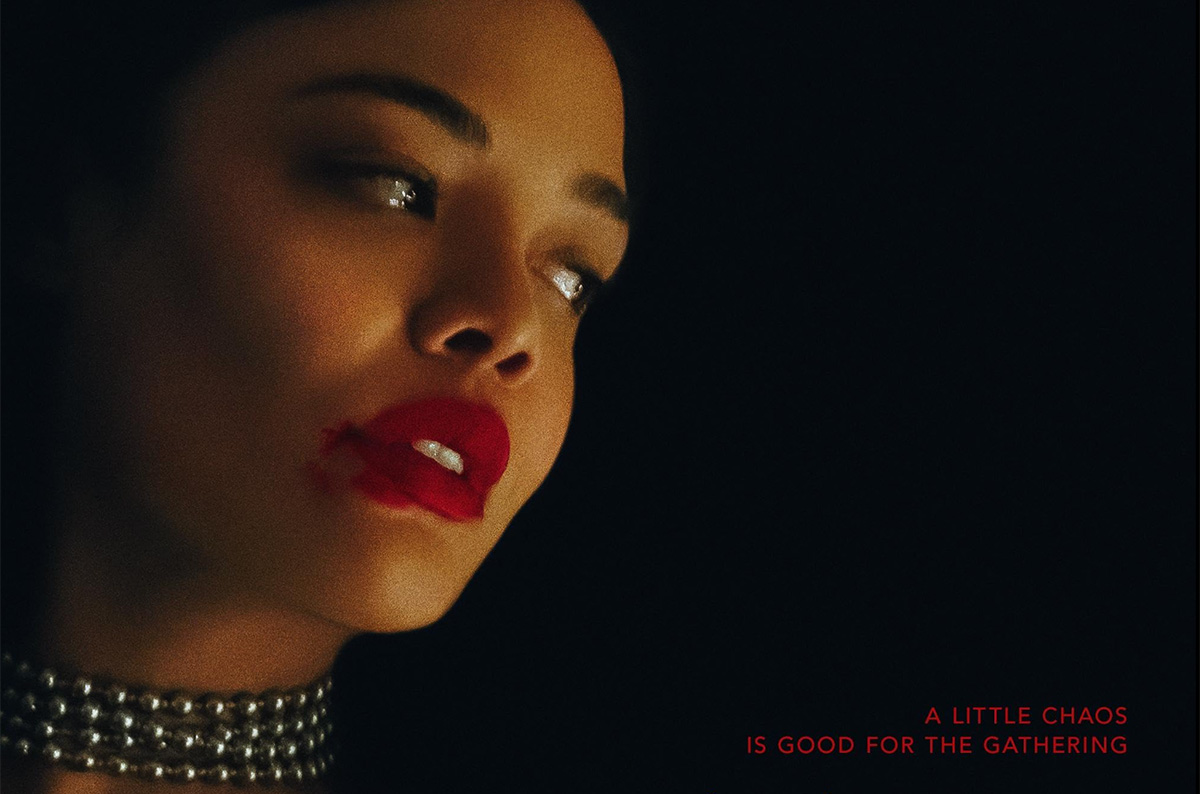
The 83rd annual Golden Globes awards are set for Sunday (CBS, 8 p.m. EST). One of the many bright spots this awards season is “Hedda,” a unique LGBTQ version of the classic Henrik Ibsen story, “Hedda Gabler,” starring powerhouses Nina Hoss, Tessa Thompson and Imogen Poots. A modern reinterpretation of a timeless story, the film and its cast have already received several nominations this awards season, including a Globes nod for Best Actress for Thompson.
Writer/director Nia DaCosta was fascinated by Ibsen’s play and the enigmatic character of the deeply complex Hedda, who in the original, is stuck in a marriage she doesn’t want, and still is drawn to her former lover, Eilert.
But in DaCosta’s adaptation, there’s a fundamental difference: Eilert is being played by Hoss, and is now named Eileen.
“That name change adds this element of queerness to the story as well,” said DaCosta at a recent Golden Globes press event. “And although some people read the original play as Hedda being queer, which I find interesting, which I didn’t necessarily…it was a side effect in my movie that everyone was queer once I changed Eilert to a woman.”
She added: “But it still, for me, stayed true to the original because I was staying true to all the themes and the feelings and the sort of muckiness that I love so much about the original work.”
Thompson, who is bisexual, enjoyed playing this new version of Hedda, noting that the queer love storyline gave the film “a whole lot of knockoff effects.”
“But I think more than that, I think fundamentally something that it does is give Hedda a real foil. Another woman who’s in the world who’s making very different choices. And I think this is a film that wants to explore that piece more than Ibsen’s.”
DaCosta making it a queer story “made that kind of jump off the page and get under my skin in a way that felt really immediate,” Thompson acknowledged.
“It wants to explore sort of pathways to personhood and gaining sort of agency over one’s life. In the original piece, you have Hedda saying, ‘for once, I want to be in control of a man’s destiny,’” said Thompson.
“And I think in our piece, you see a woman struggling with trying to be in control of her own. And I thought that sort of mind, what is in the original material, but made it just, for me, make sense as a modern woman now.”
It is because of Hedda’s jealousy and envy of Eileen and her new girlfriend (Poots) that we see the character make impulsive moves.
“I think to a modern sensibility, the idea of a woman being quite jealous of another woman and acting out on that is really something that there’s not a lot of patience or grace for that in the world that we live in now,” said Thompson.
“Which I appreciate. But I do think there is something really generative. What I discovered with playing Hedda is, if it’s not left unchecked, there’s something very generative about feelings like envy and jealousy, because they point us in the direction of self. They help us understand the kind of lives that we want to live.”
Hoss actually played Hedda on stage in Berlin for several years previously.
“When I read the script, I was so surprised and mesmerized by what this decision did that there’s an Eileen instead of an Ejlert Lovborg,” said Hoss. “I was so drawn to this woman immediately.”
The deep love that is still there between Hedda and Eileen was immediately evident, as soon as the characters meet onscreen.
“If she is able to have this emotion with Eileen’s eyes, I think she isn’t yet because she doesn’t want to be vulnerable,” said Hoss. “So she doesn’t allow herself to feel that because then she could get hurt. And that’s something Eileen never got through to. So that’s the deep sadness within Eileen that she couldn’t make her feel the love, but at least these two when they meet, you feel like, ‘Oh my God, it’s not yet done with those two.’’’
Onscreen and offscreen, Thompson and Hoss loved working with each other.
“She did such great, strong choices…I looked at her transforming, which was somewhat mesmerizing, and she was really dangerous,” Hoss enthused. “It’s like when she was Hedda, I was a little bit like, but on the other hand, of course, fascinated. And that’s the thing that these humans have that are slightly dangerous. They’re also very fascinating.”
Hoss said that’s what drew Eileen to Hedda.
“I think both women want to change each other, but actually how they are is what attracts them to each other. And they’re very complimentary in that sense. So they would make up a great couple, I would believe. But the way they are right now, they’re just not good for each other. So in a way, that’s what we were talking about. I think we thought, ‘well, the background story must have been something like a chaotic, wonderful, just exploring for the first time, being in love, being out of society, doing something slightly dangerous, hidden, and then not so hidden because they would enter the Bohemian world where it was kind of okay to be queer and to celebrate yourself and to explore it.’”
But up to a certain point, because Eileen started working and was really after, ‘This is what I want to do. I want to publish, I want to become someone in the academic world,’” noted Hoss.
Poots has had her hands full playing Eileen’s love interest as she also starred in the complicated drama, “The Chronology of Water” (based on the memoir by Lydia Yuknavitch and directed by queer actress Kristen Stewart).
“Because the character in ‘Hedda’ is the only person in that triptych of women who’s acting on her impulses, despite the fact she’s incredibly, seemingly fragile, she’s the only one who has the ability to move through cowardice,” Poots acknowledged. “And that’s an interesting thing.”
Events
LA Art Show, LA’s longest-running independent art fair, kicks off art season on January 7th
LA’s largest and longest-established art fair returns to the Los Angeles Convention Center’s West Hall on January 7 to 11, 2026, marking its 31st year

LA Art Show is the largest and longest-established art fair in Los Angeles, making its 31st year return at the Los Angeles Convention Center’s West Hall from January 7th to the 11th. The LA Art Show is one of the few remaining privately owned and operated Los Angeles art shows and reflects the authenticity of the city’s art scene, reflecting the vibrancy and multicultural makeup of the community.
This year, 15% of ticket proceeds will benefit the American Heart Association’s Life Is Why campaign. This year’s art show will reflect the fair’s global presence.
Director and producer Kassandra Voyagis shared, “Although it was an unimaginable time for the city, we are thankful that so many people came out for last year’s remarkable 30th anniversary edition during which we got to support the artistic community while also paying homage to the resilience of Los Angeles. We are thrilled to once again unite galleries, artists, and enthusiasts from across the globe to participate in and celebrate the city’s rich cultural legacy.”
DIVERSEartLA, LA Art Show’s non-commercial platform will be curated by Marisa Caichiolo and will return to explore the evolving landscape of contemporary art through the lens of biennials and museums, exploring their complementary roles and tensions. As an education platform, it will highlight how they both exist as vital platforms for artistic innovation, dialogue, and engagement. This year, Caichiolo will also curate the invitation-only Latin American Pavilion, showcasing emerging artists from other regions of the American Continent.
Focusing on memory, migration,the and identity, the Latin American Pavilion engages in deep ancestral inquiry into power dynamics of artist representation within the gallery system. It invites audiences to reconsider provenance, belonging, and the evolving future of Latin American art — transforming how works move and resonate across borders.
“At a moment when immigration issues continue to disproportionately impact Latin American communities, it is especially important to provide a platform for these artists,” states Caichiolo. “Their perspectives are vital to a more complete and equitable understanding of contemporary art, yet they remain underrepresented at major fairs. This pavilion seeks to amplify their voices and affirm the cultural and creative contributions of Latin America on the global stage.”
Caichiolo invited a select group of galleries to form the pavilion, chosen for their representation of a diverse range of Latin American artists who embody the region’s voices and perspectives
This year’s LA Art Show will feature over 90 exhibitors, both local and international galleries that include LICHT FELD Gallery (Switzerland); Rebecca Hossack Art Gallery (U.K), Coral Contemporary Gallery (Miami), K+Y Contemporary Art (Paris), Arcadia Contemporary (New York), and Fabrik Projects (Los Angeles). Rehs Galleries, a New York-based gallery showcasing historic and contemporary art, makes its return, having participated in the LA Art Show since its inception in 1994.
LA Art Show 2026 will feature a number of first-time exhibitors, expanding its international reach. These exhibitors include Dublin-based Oliver Sears Gallery, along with a strong U.K. presence with first-time galleries, including John Martin Gallery out of London, and Quantum Contemporary Art. Pontone Gallery, based out of London’s West End, will present works by self-taught Manchester artist Chris Rivers, who has gained a significant presence among collectors and A-list celebrities. Rivers, a professional rock drummer, creates vibrant and surreal oil paintings and hand-gilded editions, drawing from his fascination with astronomy, mythology, and celestial cartography. Other galleries showing at the LA Art Show for the first time include Gefen Gallery (San Francisco), Steidel Contemporary (Lake Worth), and Corridor Contemporary (Tel Aviv). LA Art Show 2026 will also continue its strong South Korean representation with over 10 galleries participating.
Provident Fine Art, located in Palm Beach, will make its LA Art Show debut with a distinctive solo exhibition showcasing Sylvester Stallone’s abstract canvas paintings. Stallone has been painting since his adolescence, and as a prolific screenwriter, he often turned to art to assist in the development of his iconic characters. Exclusively represented by Provident Fine Art, this exhibition will signify his first major showcase in years, with the majority of the works available for purchase. His artworks have previously been displayed in retrospective exhibitions at museums in St. Petersburg, Russia, and Nice, France.
Tickets are now available at www.laartshow.com
-

 a&e features5 days ago
a&e features5 days agoVic Michaelis is a very important person
-
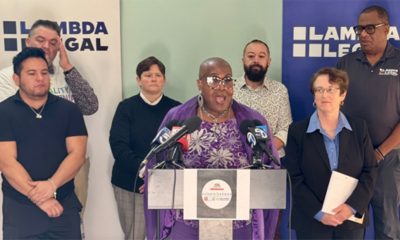
 Los Angeles4 days ago
Los Angeles4 days agoAdvocates demand that trans youth be protected as cases are argued in Supreme Court
-
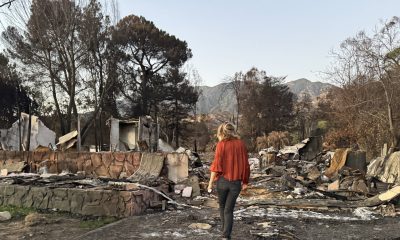
 Film4 days ago
Film4 days ago‘All The Walls Came Down’ gives a voice for the Altadena fire survivors
-
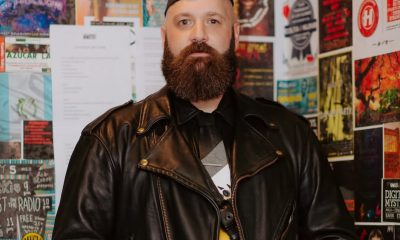
 Leather community5 days ago
Leather community5 days agoBEAR SIGHTING: Looking into the next chapter with Mr. LA Leather Bear 2025 Mike Klipsch
-

 Features21 hours ago
Features21 hours agoLiliana T. Pérez-Palacios uplifts BIPOC, immigrant and queer rights with the L.A. Chargers
-

 Commentary2 days ago
Commentary2 days agoWhat do we sacrifice to get laid?

